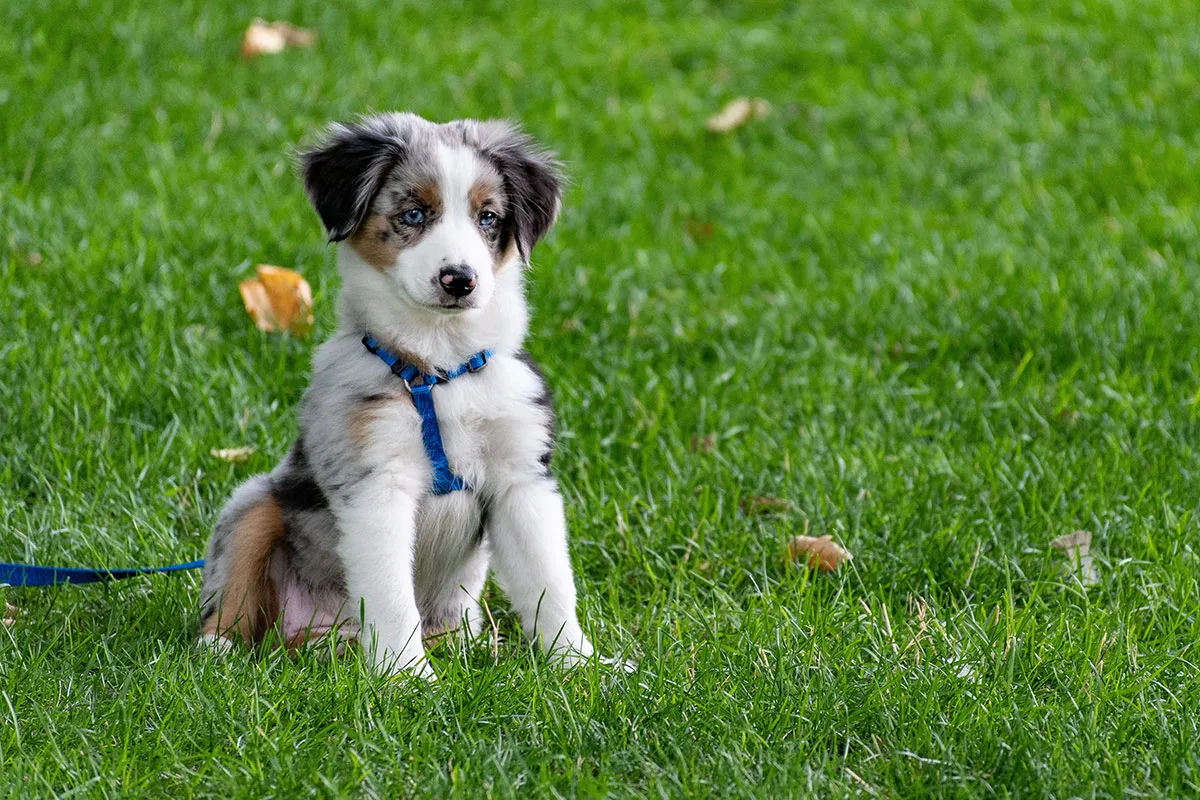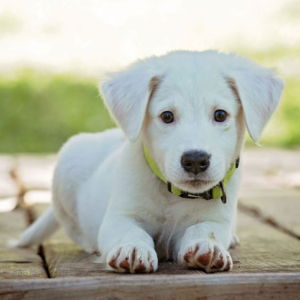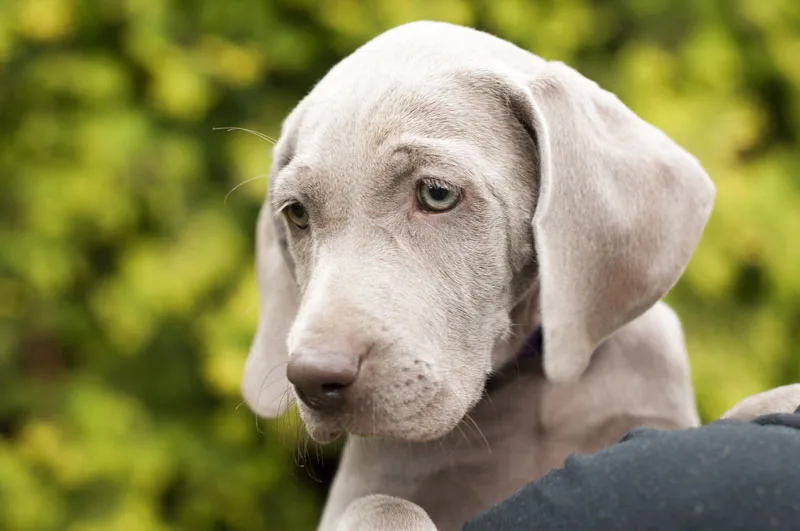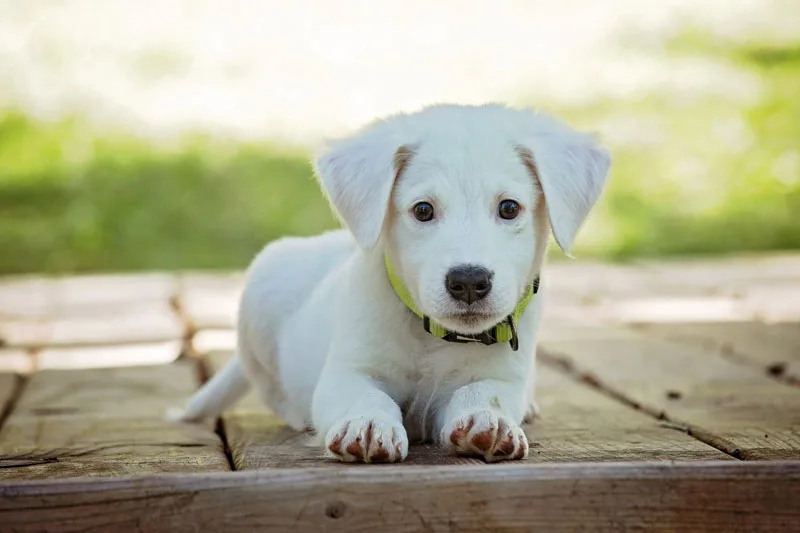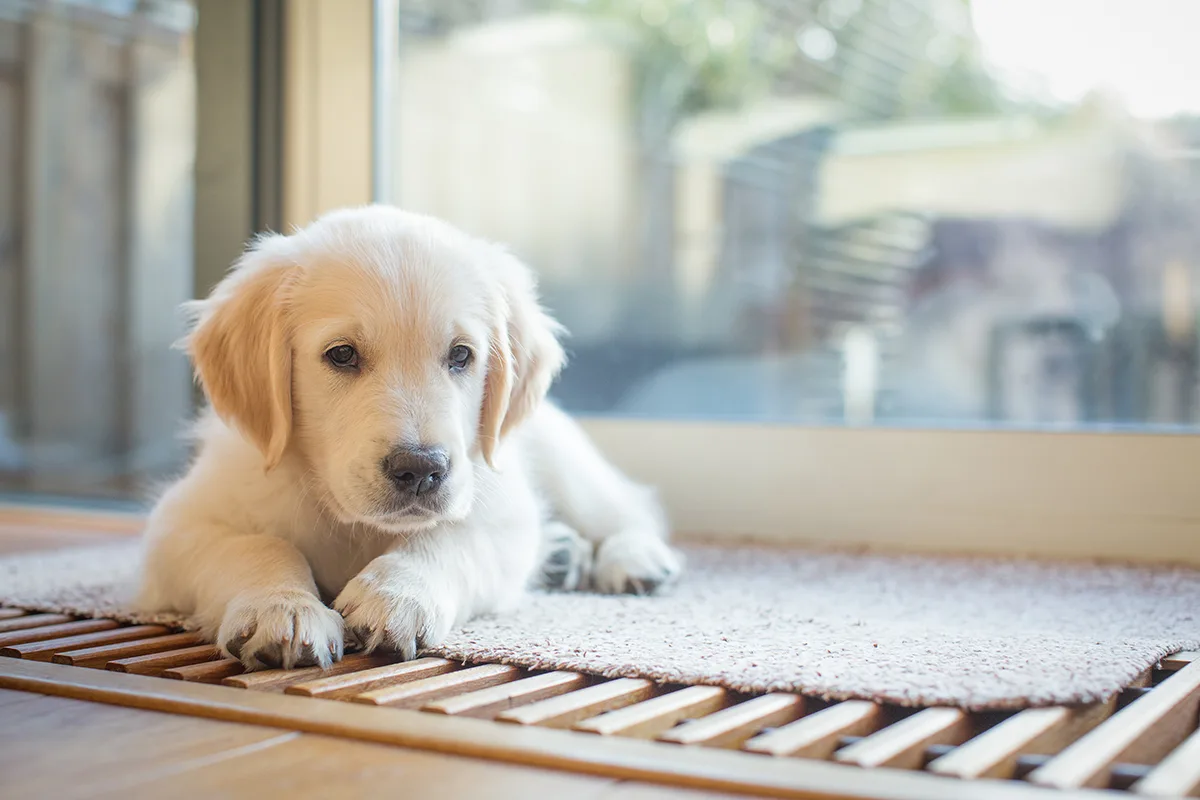
Puppy separation anxiety can develop because your new pet gets used to having you around and they develop a bond. Many puppies can get separation anxiety because they don’t fully understand why you leave them.
To help prevent puppy separation anxiety, it’s important for your puppy to be comfortable when left alone. Four hours is the longest that a dog should be left alone for, but it can depend on their age. An active young puppy may get bored after four hours, but a senior dog may be ok to be left for longer.
Most puppies will whine or cry a little when left alone. True separation anxiety is defined as destructive or disruptive behaviour, including constant barking and whining.
Why does my puppy have separation anxiety?
Separation anxiety can happen for many reasons, such as when your dog isn’t used to being left alone or is scared of something in the home.
Other things that can lead to puppy separation anxiety include:
- Poor socialisation
- Not being used to being alone
- Changes in the home
- Boredom
How to help reduce puppy separation anxiety
There are many positive things you can do, which include:
Don’t make a fuss
When leaving them alone, don’t make a fuss – this can increase your puppy’s anxiety levels. Leave them with a treat or a toy so they can associate their dog crate or bed with something positive.
Leave the TV or radio on
Leaving the TV or radio on when you go out can help to keep your puppy company and also drown out any external noise which may make them anxious or bark constantly.
Stay calm when returning
Try not to get overly excited when you return home or in the morning when waking up. Just let your puppy out of his crate and take them outside to go to the toilet. Once they have relieved themselves you can make a fuss as a reward.
Crate train your puppy
When this is done properly, the use of a crate is a great way to help your puppy remain calm and stay out of trouble.
Get them used to being alone
Leave your puppy alone in their crate or a safe and secure room (you could use a baby gate to prevent escape) for short periods of time. Gradually increase the time you leave them and reward good behaviour with praise.
Ask someone to check on them
If you know you’re going to be out for a long period, ask a neighbour or family friend to check in on your puppy. This will allow them some time out of their crate and give them a chance to go to the toilet if they need too.
Ask your vet about Nutracalm
Nutracalm is a fast-acting supplement for reducing stress and anxiety. It has been developed to help stressed and fretful pets without any sedative effect and can be used to help calm puppy separation anxiety.
Nutracalm is recommended by thousands of vets throughout the UK and Ireland.

